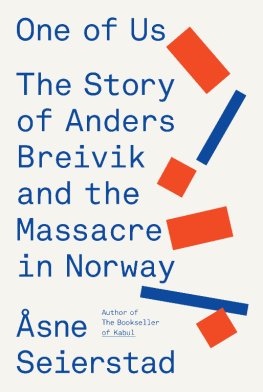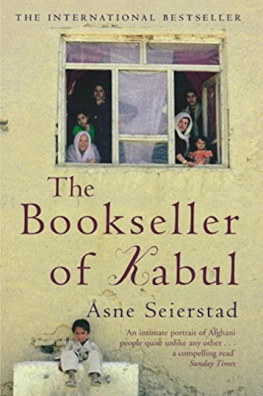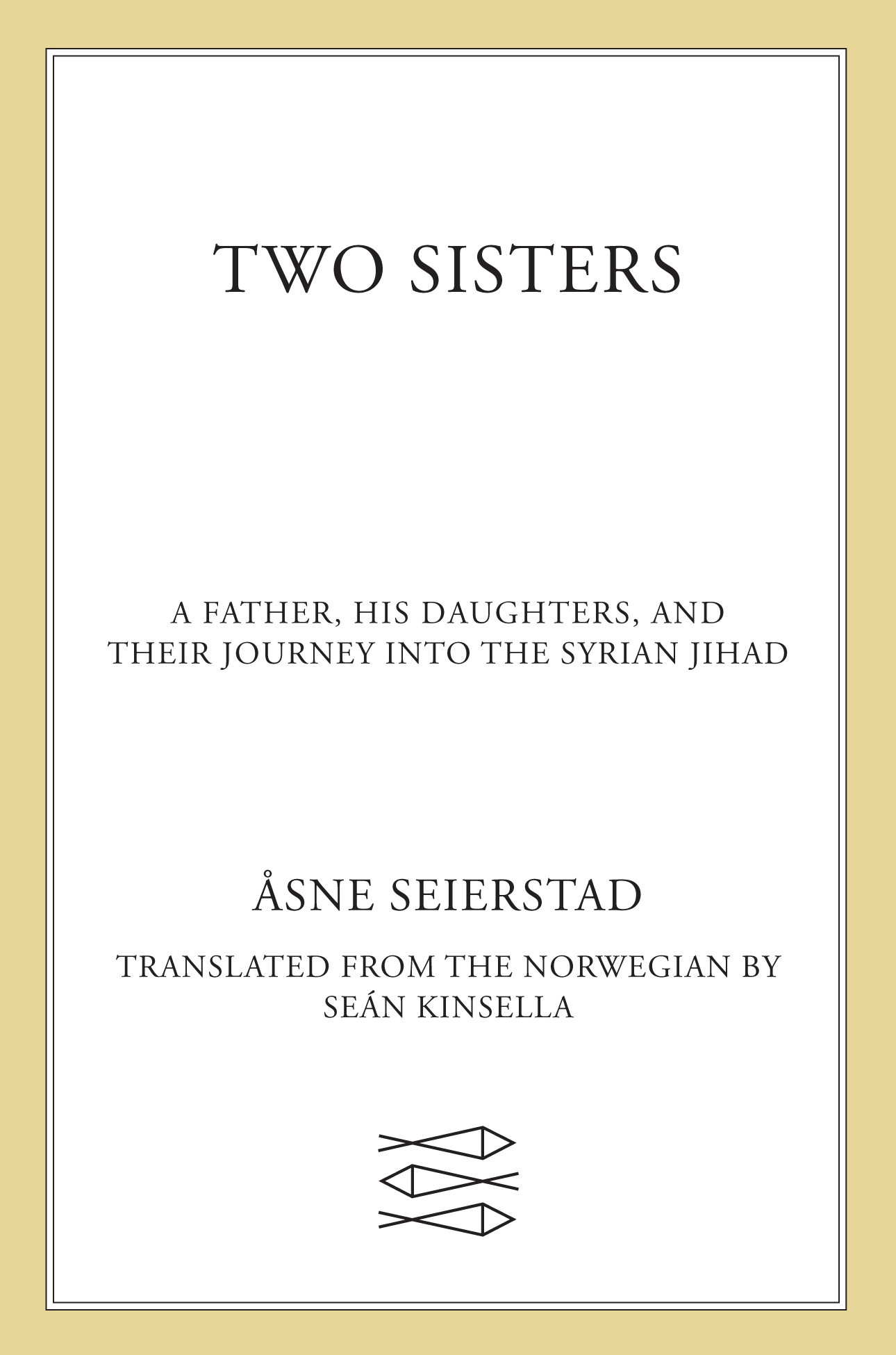Contents
Guide
Pagebreaks of the print version

The author and publisher have provided this e-book to you for your personal use only. You may not make this e-book publicly available in any way. Copyright infringement is against the law. If you believe the copy of this e-book you are reading infringes on the authors copyright, please notify the publisher at: us.macmillanusa.com/piracy.
This is a documentary account.
It is based on testimony. I constructed scenes on the basis of what those who were present related. Some scenes have several sources, others have only one.
I based descriptions of a persons thoughts upon what that person said he or she thought in a given situation.
Some individuals chose not to contribute to this book. They are described according to their actions, written sources, and what others related about them.
For Arabic words, I use a simplified version of the Journal of Middle Eastern Studies transcription system. I depart from this in the case of some proper nouns with established spellings in Western languages.
For the most part I printed e-mails and texts without correction. In these I reproduce the senders spelling of Arabic words and names.
A comprehensive review of working methods is provided in the afterword. A glossary of Islamic words and expressions and a list of published sources appear at the back of the book.
The Prophet said of the martyrs:
Their souls reside in green birds, nesting in lanterns hung from the throne of the Almighty, roaming freely to eat the fruits of Paradise. Their Lord looked upon them and asked did they wish for anything. They said: What more shall we desire? We eat the fruit of Paradise from wherever we please. The Lord asked them again, and when He asked for the third time, they said: Lord, we wish that thou return our souls to our bodies so we may again offer our lives for your sake. When God saw that they were not in need of anything, He let them stay in Paradise.
Imparted by Abdallah ibn Masud, died c. 650
We will all return to Allah when we die, but let us all strive to return to Allah while still alive.
Umm Hudayfah, aka Ayan, October 10, 2013
The bunk bed was in the center of the room. A white metal rail ensured that whoever lay on top did not roll off. The bed divided the room in two and was made up with colorful bedclothes. By the door there were a desk, a chair, and a wardrobe. On the other side, a chest of drawers and a window with a view of a reddish brick housing block, identical to their own. The window ledge was so low that you could easily swing your legs over it and drop down onto the grass. Notes were taped to the furniture, neatly written letters, first drafted in pencil, then gone over in blue marker: Bed. Window. Chair. Desk. Door. The wallpaper above the chest of drawers was covered in them. Big, small, high, low, warm, cold. The Arabic script was carefully rendered, although obviously the work of a beginner, as several of the letters were mixed up. The translations into Norwegian were spelled correctly but written sloppily in faint pencil.
The younger sister, the one who slept in the top bunk, had put up the notes. They not only adorned the girls room but also hung around the rest of the apartment: Lamp. Sofa. Curtain. Shelf. The course in Arabic began with worldly things, but the purpose was spiritualto read and understand the Koran as it was revealed to the Prophet Muhammad.
I. He. We. I am. He is. We are. Allahu Akbar. God is great. God is greater. Guide us to the straight path!
* * *
That October morning, Leila had climbed down from the top bunk earlier than usual. She put on a floor-length dress and joined her mother in the kitchen, which was adjacent to the girls room. Sara was the one in the family who woke first. She would steal out of bed, placing her feet carefully on the floor so she wouldnt wake Sadiq. It was not until he missed her warmth, until the bed had cooled and he noticed he was freezing, that he would get up.
Sara stood at the breakfast table, lost in her own thoughts. She looked up in surprise at her daughter, who had turned sixteen the week before. Leila resembled her fatherslender, tall, and long-limbed.
I can help you get the boys ready, she said.
Dont you have school today? her mother asked.
Yeah, I just thought you could use a hand
No, you get yourself organized, I can take care of the boys myself.
In contrast to her big sister, who had taken on several of the household duties, Leila did not usually offer to help out. Her royal laziness, her father often called her.
Sara softly roused six-year-old Isaq and eleven-year-old Jibril. She helped Isaq get dressed and hurried the boys into the kitchen.
Sadiq was already standing by the stove.
The brown beans had been prepared the previous evening. Now he sauted diced onion in oil, added a couple of crushed garlic cloves, a little more oil, then strips of red pepper and spices, until it all took on a darker color. He added the beans and simmered the mixture, then blended it all with a hand mixer. He poured the pure onto a large plate, drizzling olive oil to make golden circles in the brown.
Isaq and Jibril were still drowsy as they plunked down on their chairs. They dipped pieces of bread into the bean stew and popped them in their mouths. Isaq made a mess as usual. Jibril hardly let a crumb fall outside his plate.
Leila hovered around the table, where a pot of black tea with cardamom seeds had been placed.
Arent you going to sit down? her father asked.
No, Ayan and I are fasting, the sixteen-year-old replied.
Her father did not pursue the topic. Leila and her big sister, Ayan, who was in the bathroom, were strict when it came to fasting. Women were not permitted to perform religious rituals while unclean, and the girls wanted to catch up on the days they had missed as soon as possible. Mondays and Thursdays were the best days, when the Prophet Muhammad fasted. Today was Thursday.
Ramadan had been an ordeal. This year the fasting month had fallen in July, when the sun did not go down until after ten oclock at night and rose just a few hours later. It was long to go without food and drink. Now, during Dhu al-Hijjahthe month of the pilgrimagethe girls were fasting again and had intensified their daily prayer. It was the most sacred period in the Islamic calendar, the best time for the hajj , to travel as a pilgrim to Mecca. Good deeds counted for more now than at other times of the year.
* * *
Ismael, the third brother, who was between Ayan and Leila in age, entered the kitchen with a towel wrapped around his waist. He was on his way to the bathroom, where Ayan had just finished. If he encountered his sisters when strutting around half-naked, he usually lurched into them for fun. Dont! they would shout. Mom, hes annoying us!
The three teenagersAyan, who was nineteen years old; Ismael, eighteen; and Leila, sixteenhad drifted apart. The sisters complained that their brother was only interested in working out, hanging around with friends, and playing computer games. His lack of attendance at the mosque did not go unnoticed. It was embarrassing. Youre not a Muslim! Ayan had recently shouted at him, and had gone on to urge her mother to throw him out. She could not live with someone who did not pray.
Hes just confused! their mother had said in his defense.
Kick him out!









